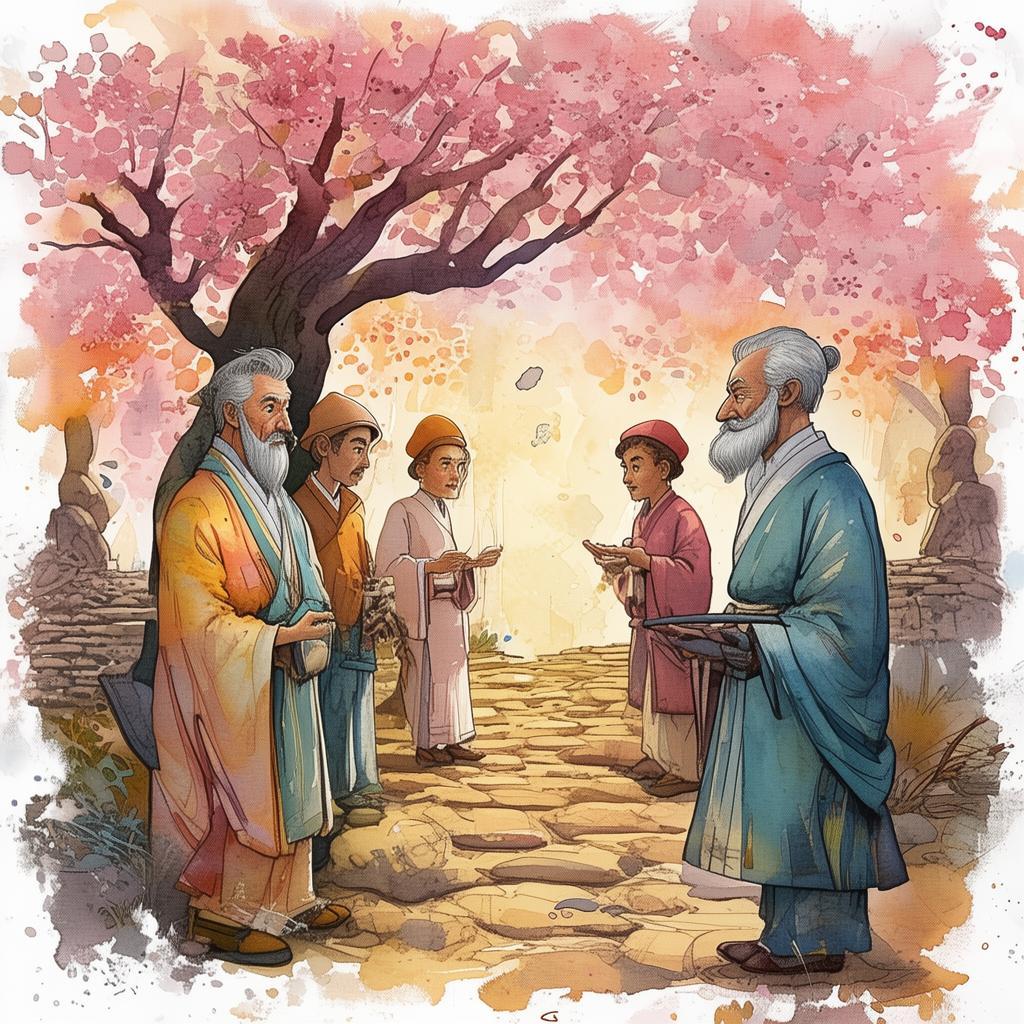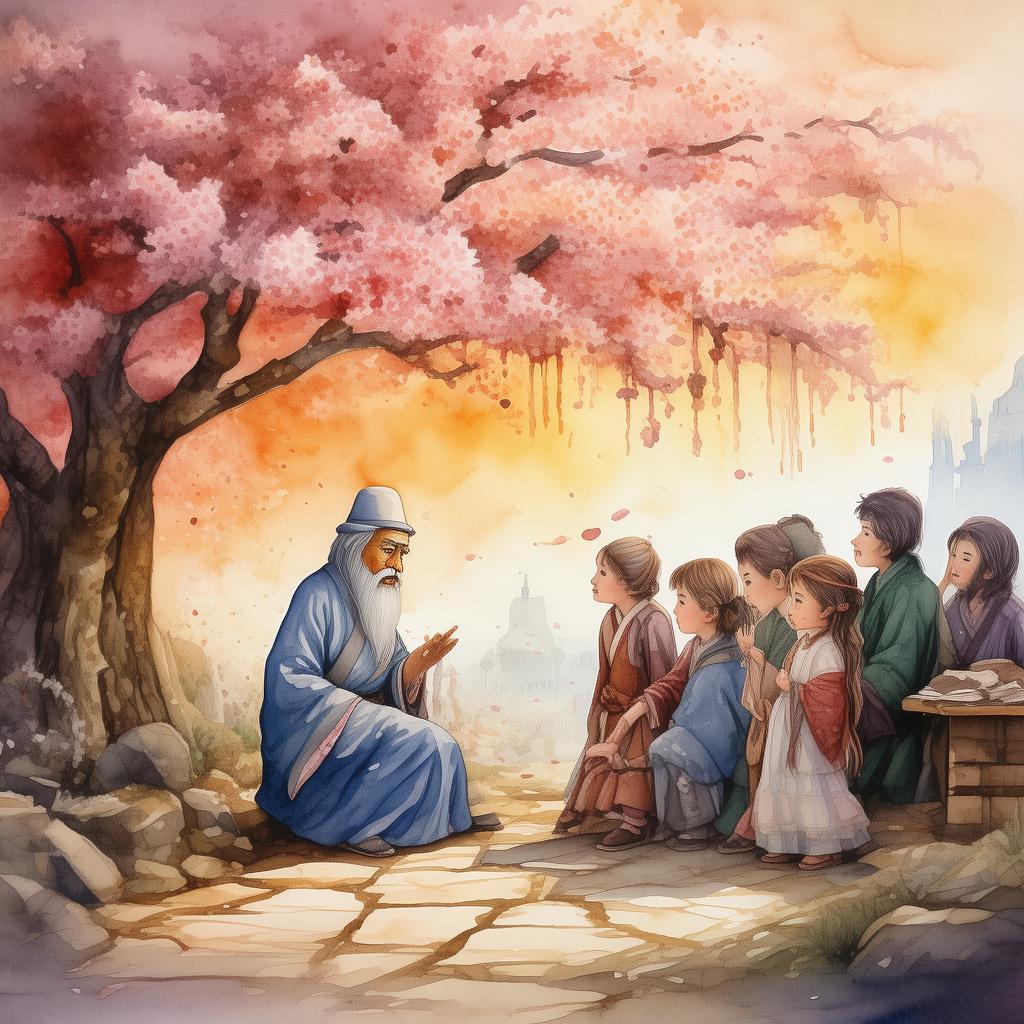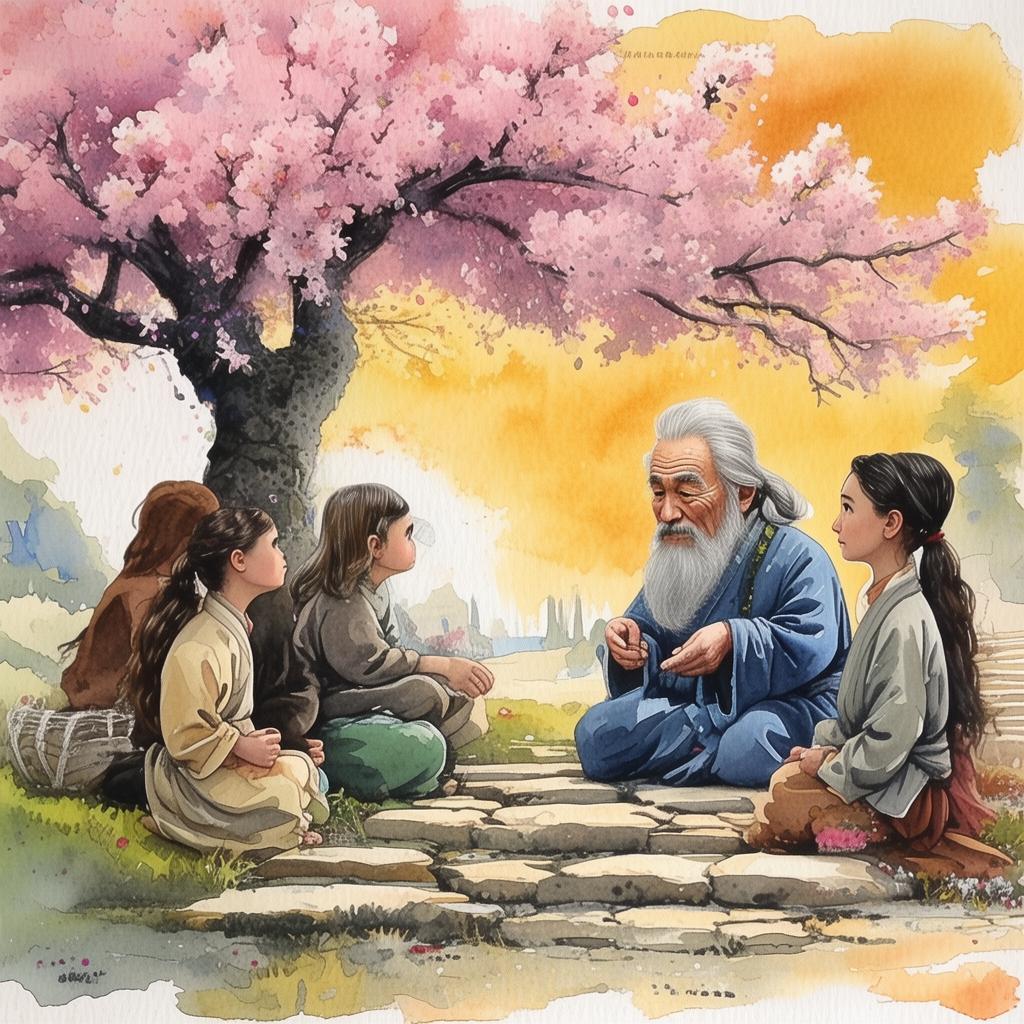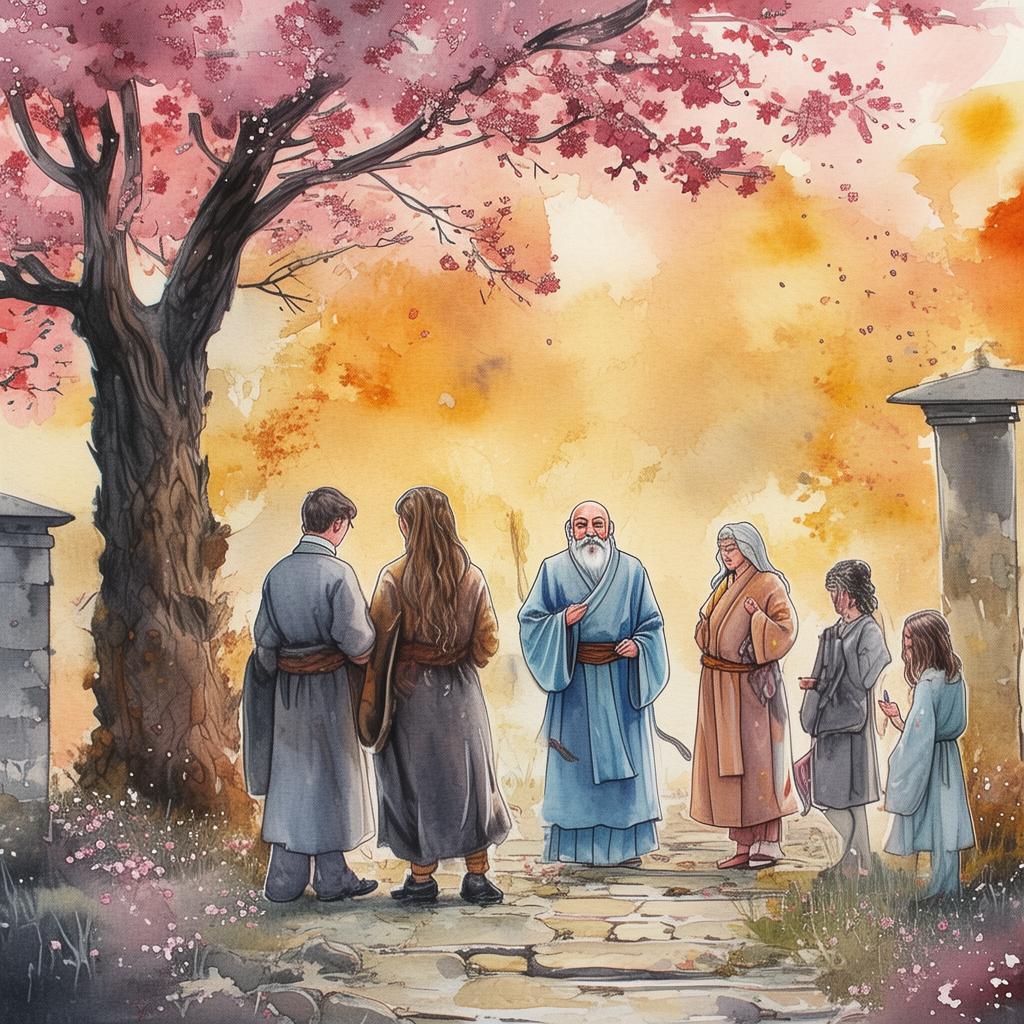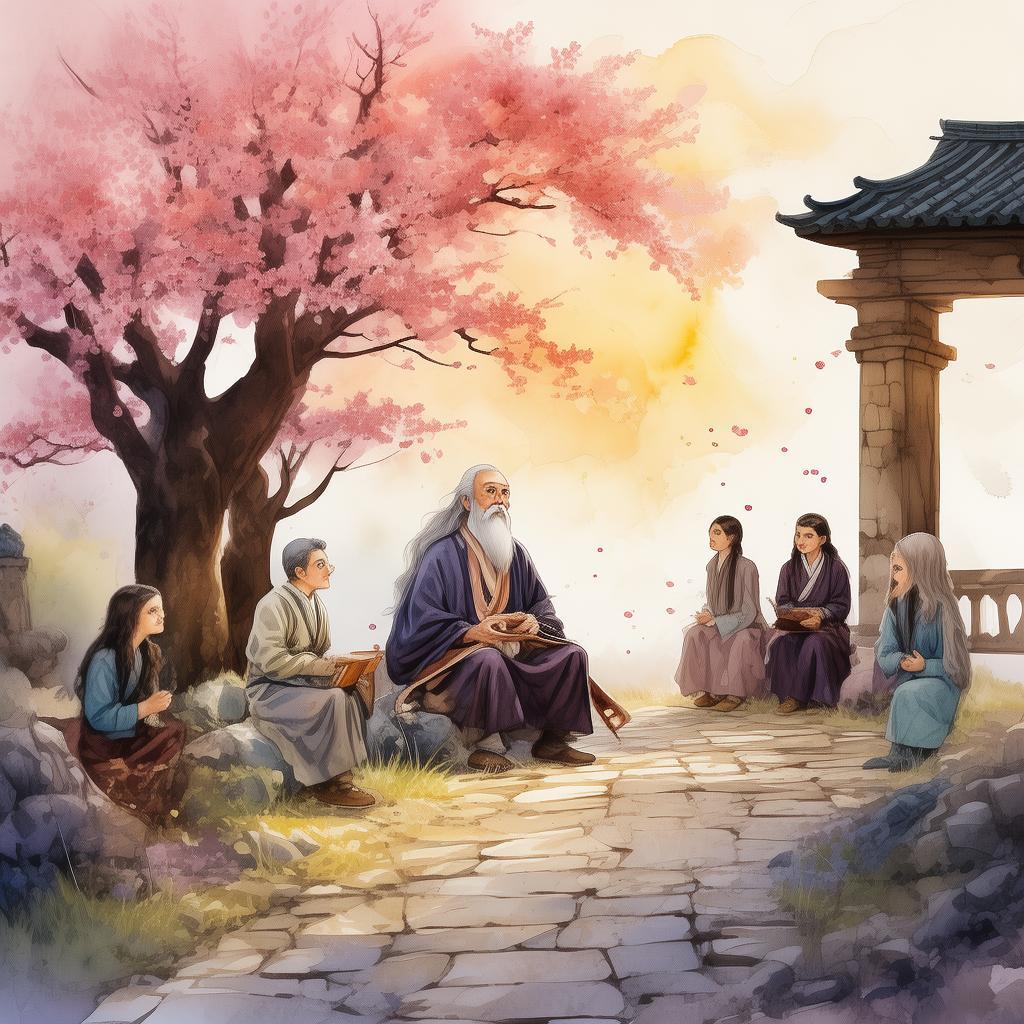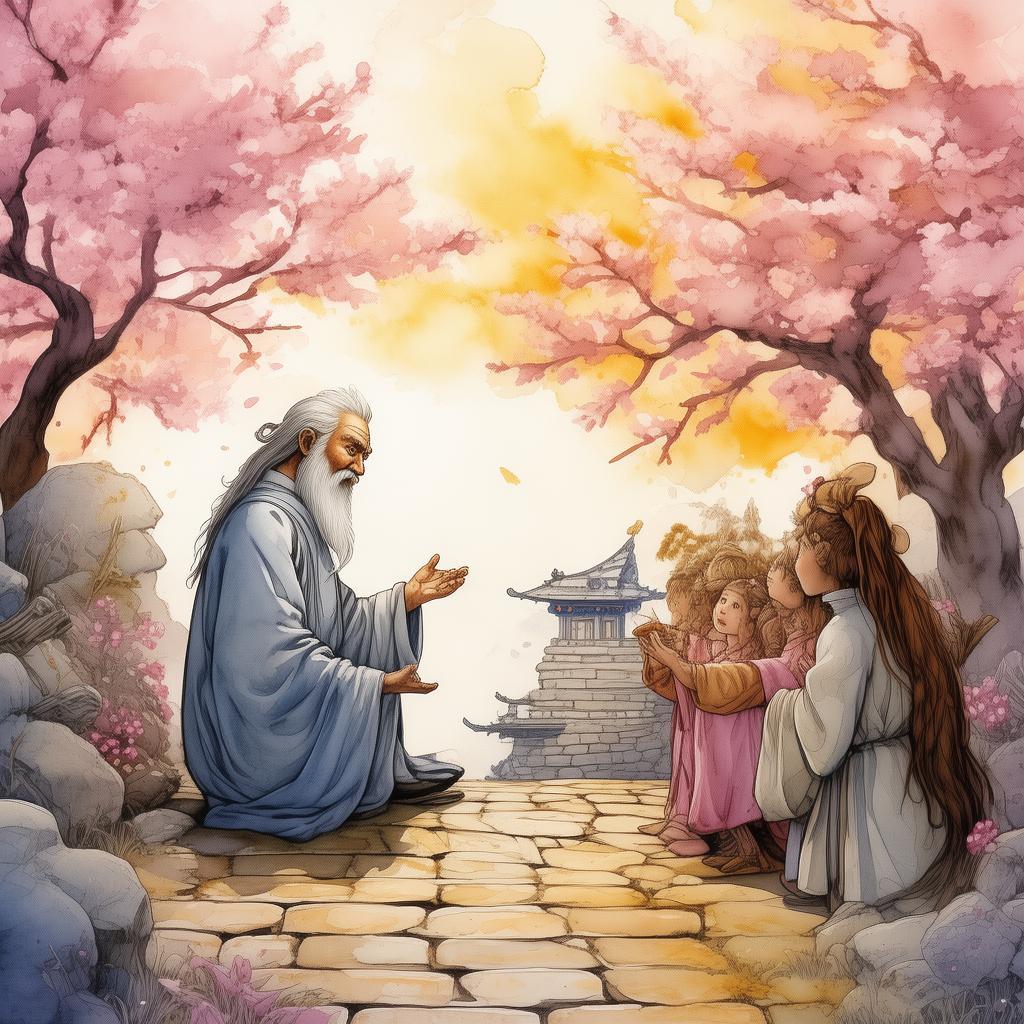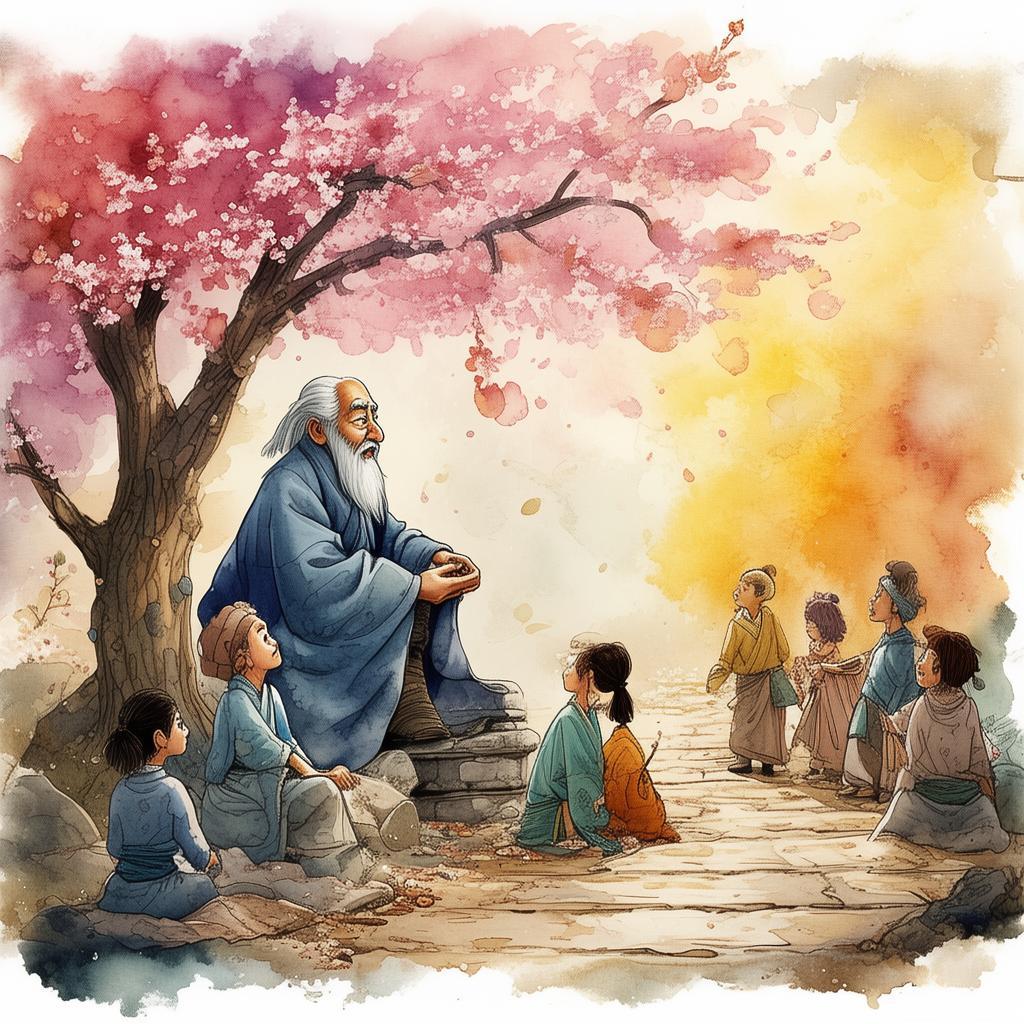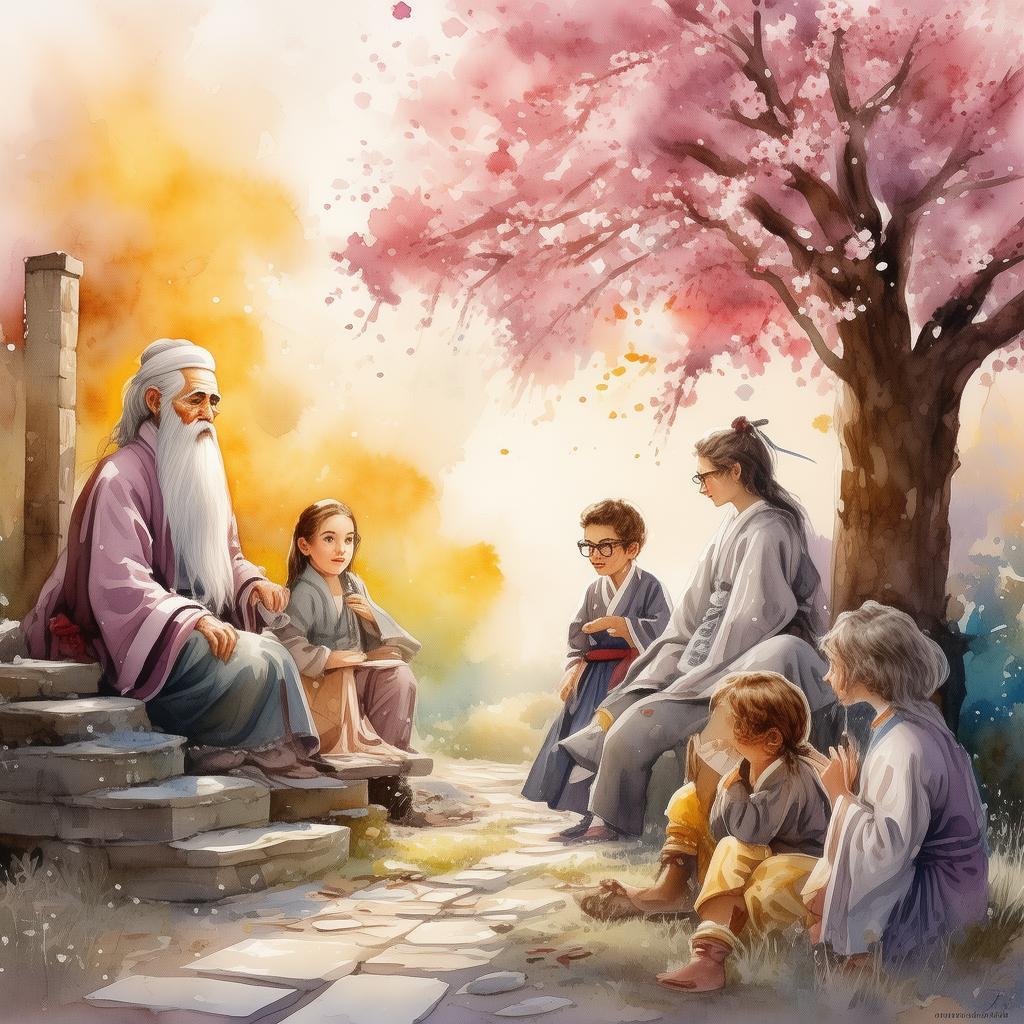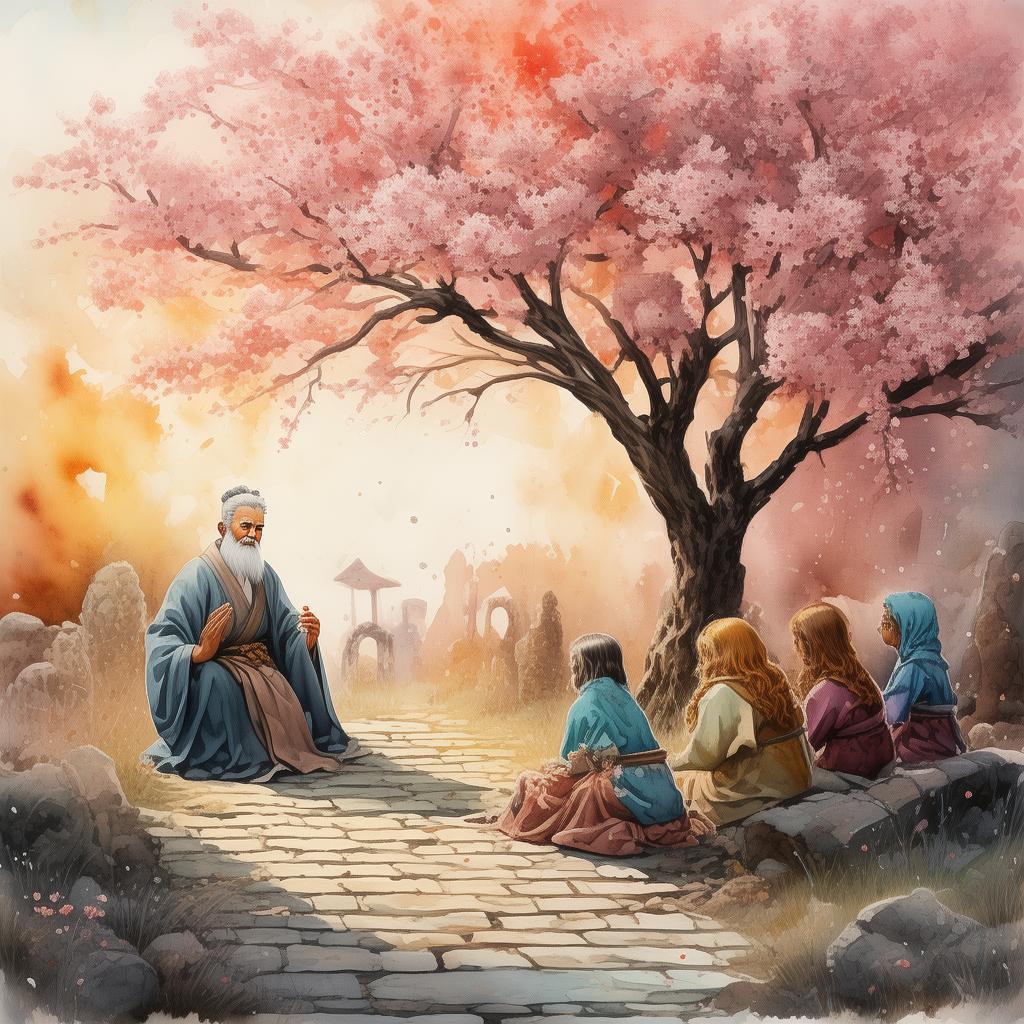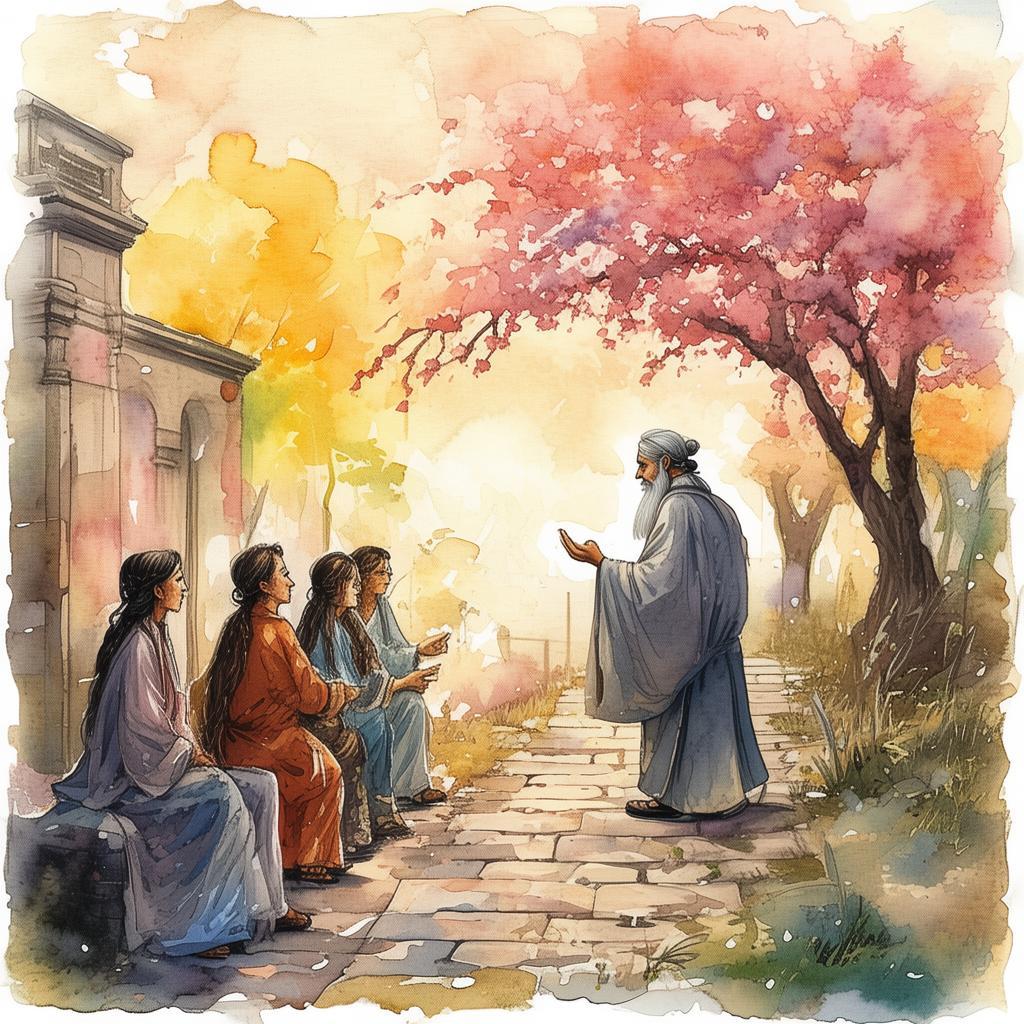The Calligrapher's Curse: The Script of Eternal Despair
In the ancient city of Linyi, nestled among the towering mountains and winding rivers, there lived a master calligrapher named Jing. His name was whispered in reverence, for his brush strokes were as fluid as the rivers and as powerful as the mountains. Jing's art was not merely about the beauty of the characters he wrote but about the essence of the words that danced upon the paper.
One fateful evening, as the moon hung low and the stars twinkled like diamonds in the night sky, Jing was working on a commission for the Emperor. The script was a rare and ancient one, said to be the "Script of Eternal Despair," a text that had been lost to time and forbidden by the ancients due to its dark and malevolent nature. The Emperor, a man who sought power and immortality, had heard tales of the script's supposed ability to grant its bearer eternal life, and he was determined to have it.
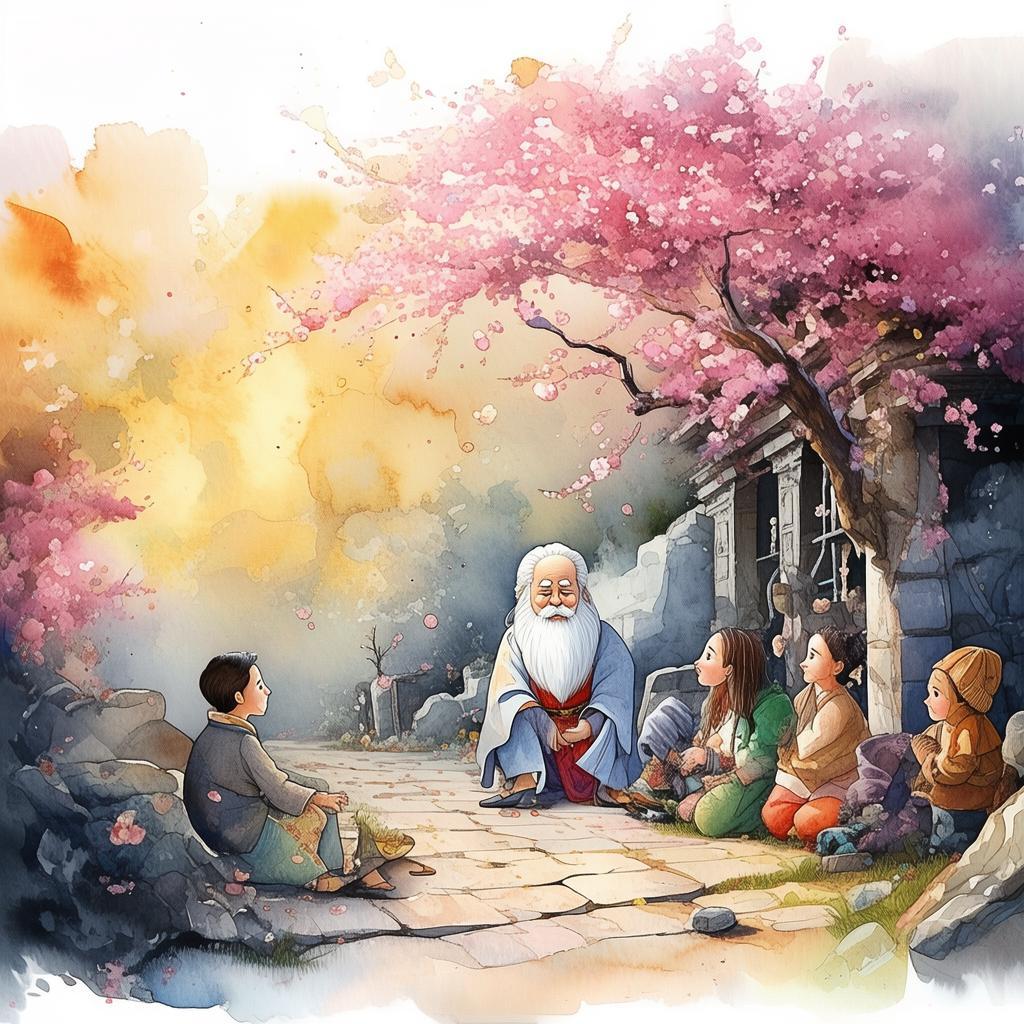
Jing, knowing the dangers of the script but driven by curiosity and the promise of a great fortune, decided to transcribe it. As he worked, the ink seemed to have a life of its own, flowing from his brush with an eerie grace. The characters took on a life of their own, their forms shifting and twisting as if they were alive.
As the final character was drawn, a blinding light enveloped the room. Jing felt a chill run down his spine, but he was too absorbed in his work to pay it much mind. The light faded, and Jing found himself standing before a mirror, his reflection distorted and twisted. He reached out to touch his face, but his hand passed through it as if it were made of smoke.
Panic set in as Jing realized the script had cursed him. He was trapped in his own reflection, a living ghost, unable to touch the world he once knew. The curse had bound him to the script, and he was doomed to roam the world, a ghostly reminder of the dangers of forbidden knowledge.
Desperate to break the curse, Jing set out on a journey. He traveled through the mountains and across the rivers, seeking answers and a way to undo the curse. Along the way, he encountered spirits, both benevolent and malevolent, who tested his resolve and his character.
One day, Jing came upon an ancient temple hidden in the depths of the mountains. Inside, he found an old monk who claimed to be the keeper of the script's secrets. The monk explained that the script was not a source of power but a warning against the misuse of knowledge. To break the curse, Jing must destroy the script and renounce his pursuit of forbidden knowledge.
Jing, realizing the truth of the monk's words, agreed to the task. He returned to the Emperor's palace, where he confronted the Emperor with the truth about the script. The Emperor, filled with rage and despair, attempted to kill Jing, but the calligrapher, now a ghost, was able to escape.
With the script in hand, Jing sought a place to destroy it. He found a secluded cave at the edge of the world, where the winds howled and the spirits roamed. As he stood before the script, he felt the weight of the curse lifting from his soul. He took a deep breath and, with a single stroke of his brush, he erased the script from existence.
The world around him seemed to shift, and Jing felt a surge of warmth and light. He opened his eyes to find himself back in the temple, the monk standing before him. The monk smiled, and as Jing looked into his eyes, he saw the reflection of a man, not a ghost.
The curse was broken, and Jing was free. He returned to his life, a changed man, forever grateful for the lessons he had learned. The Emperor, having seen the true nature of the script, renounced his pursuit of immortality and sought to atone for his actions.
The calligrapher's journey had become a legend, a tale of redemption and the power of knowledge. And so, the story of Jing, the calligrapher who had faced the Script of Eternal Despair, lived on, a reminder to all who would seek forbidden knowledge that there are consequences, and that redemption is always possible.
✨ Original Statement ✨
All articles published on this website (including but not limited to text, images, videos, and other content) are original or authorized for reposting and are protected by relevant laws. Without the explicit written permission of this website, no individual or organization may copy, modify, repost, or use the content for commercial purposes.
If you need to quote or cooperate, please contact this site for authorization. We reserve the right to pursue legal responsibility for any unauthorized use.
Hereby declared.
